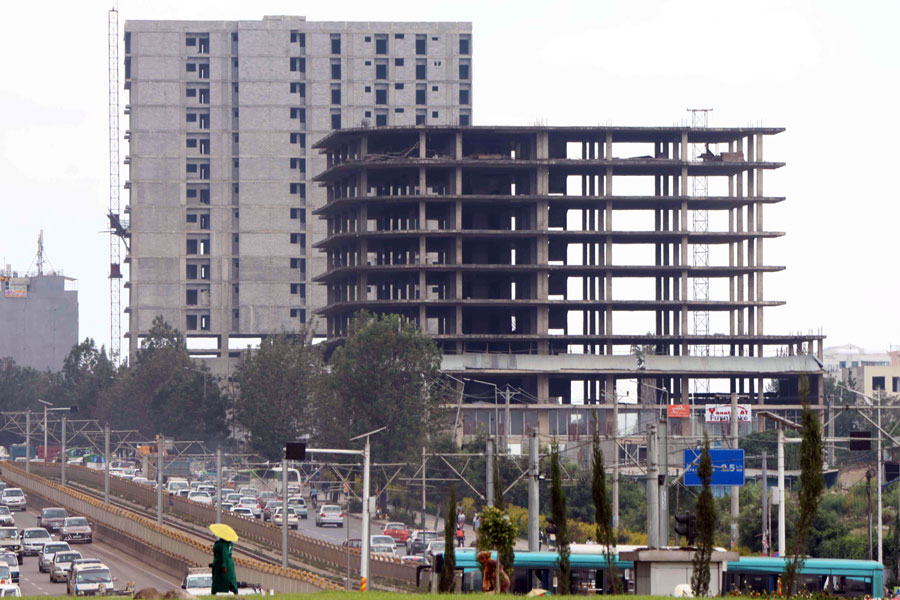
Viewpoints | Nov 25,2023
Feb 23 , 2019
By Samuel Kariuki
The next stage of the East African real estate market should be affordability for the working class, which investors will find more profitable, writes Samuel Kariuki, managing director of Centum Real Estate.
The last two decades of the real estate boom in East Africa has changed our building landscape and inventory, as it quite rightly should have done.
Our starting point was a region that was short of every kind of building, from housing to shops, offices, warehouses, hotels and even student hostels. In all, we faced a real estate landscape that was cripplingly underinvested. And we invested.
Choosing which type of investment barely mattered. Every kind of property sold fast. Developments got snatched up even before the building bricks were laid, simply because the market had little to offer.
We are no longer in that situation. But confusing our sector’s move to maturity with the end of real estate investment opportunities is a mistake.
In our first years of heavy real estate investment, we concentrated primarily in high-end assets, because we all believed they delivered higher margins and higher returns. In fact, that is no longer the case and may never have been the case. But when we were short of everything, we began with expensive buildings.
We built estates of detached houses and townhouses, high-end rental apartments, shopping malls, often huge ones, and towering office blocks. And in some areas, we began to reach market saturation. As a result, an investor putting up a million dollars worth of penthouses now, unless they are building for a specific unmet need, would be lucky to fill it in four years.
Yet only a tiny proportion of citizens in East Africa live in high-end neighbourhoods. When we look at the needs of the country’s working classes, market researchers have reported demand for two million units. Of this, over two-thirds are for earners who can afford rent of 180 dollars to half a thousand dollars a month.
Today, it is hard to pinpoint any stock that is coming to the market for this segment, certainly not to the scale that responds to this opportunity. Instead, investment in this type of property has been left to unsophisticated investors in what is largely a landlord market delivering developments, as is the case in the more densely populated Nairobi.
The buildings are unplanned and non-compliant with construction standards, as developers seek to lower construction costs and complete projects more quickly to increase returns.
However, a huge opportunity exists for a better quality of real estate in this segment. Moreover, while the perception that rental yields in high-end areas are higher has driven investors and developers to such areas in Kenya, research has shown that yields are higher in the mid-market areas.
For instance, the average rental yields in 2016 in the mid-market were 6.5pc, compared with 6.3pc for high-end apartments. That premium in the mid-market has continued. In 2018, mid-market rental yields ran at 5.4pc, compared to high-end yields at 5.3pc.
Moreover, demand is abundant.
Thus, if the National Social Security Fund (NSSF) were to put up an organised estate in a largely middle-class area, it would not struggle with tenancy, as tenants look for a quality stock that is currently close to nonexistent.
Such estates offer almost the same amenities as homes in high-end markets, including modern, 24-hour security systems with professional security personnel, ample parking space, borehole water to cover for water shortages and maintenance services, though at far lower rents.
Similarly, for developers building commercial properties such as stalls or retail centres, as opposed to large malls, occupancy will never be their biggest challenge as they attract small and medium-sized enterprises (SMEs) and private businesses dealing with the routine needs of East African consumers.
The investment opportunities in real estate remain enormous. But now it is the turn of the working classes, and the returns are just as high for investors.
It is a challenge we welcome, with the region’s annual investor conference, the East Africa Property Investment summit to be held in April in Nairobi, set to be the largest yet and a key platform for developing real estate policy and white papers for the government.
In this, our compass should be clearly set. We do not face a depressed real estate industry. We face the next opportunity, and it is far larger than the last one.
PUBLISHED ON
Feb 23,2019 [ VOL
19 , NO
982]


Viewpoints | Nov 25,2023

Advertorials | May 27,2024

Fortune News | Aug 17,2019

Viewpoints | Feb 10,2024

Advertorials | Aug 10,2023

Radar | Feb 13,2021

Agenda | Oct 20,2024

Radar | Apr 08,2023

Viewpoints | Feb 16,2019

Sponsored Contents | Jul 05,2021

My Opinion | 131974 Views | Aug 14,2021

My Opinion | 128363 Views | Aug 21,2021

My Opinion | 126301 Views | Sep 10,2021

My Opinion | 123917 Views | Aug 07,2021

Dec 22 , 2024 . By TIZITA SHEWAFERAW
Charged with transforming colossal state-owned enterprises into modern and competitiv...

Aug 18 , 2024 . By AKSAH ITALO
Although predictable Yonas Zerihun's job in the ride-hailing service is not immune to...

Jul 28 , 2024 . By TIZITA SHEWAFERAW
Unhabitual, perhaps too many, Samuel Gebreyohannes, 38, used to occasionally enjoy a couple of beers at breakfast. However, he recently swit...

Jul 13 , 2024 . By AKSAH ITALO
Investors who rely on tractors, trucks, and field vehicles for commuting, transporting commodities, and f...

Jul 5 , 2025
Six years ago, Ethiopia was the darling of international liberal commentators. A year...

Jun 28 , 2025
Meseret Damtie, the assertive auditor general, has never been shy about naming names...

Jun 21 , 2025
A well-worn adage says, “Budget is not destiny, but it is direction.” Examining t...

Jun 14 , 2025
Yet again, the Horn of Africa is bracing for trouble. A region already frayed by wars...

Jul 6 , 2025 . By BEZAWIT HULUAGER
The federal legislature gave Prime Minister Abiy Ahmed (PhD) what he wanted: a 1.9 tr...

Jul 6 , 2025 . By YITBAREK GETACHEW
In a city rising skyward at breakneck speed, a reckoning has arrived. Authorities in...

Jul 6 , 2025 . By NAHOM AYELE
A landmark directive from the Ministry of Finance signals a paradigm shift in the cou...

Jul 6 , 2025 . By NAHOM AYELE
Awash Bank has announced plans to establish a dedicated investment banking subsidiary...